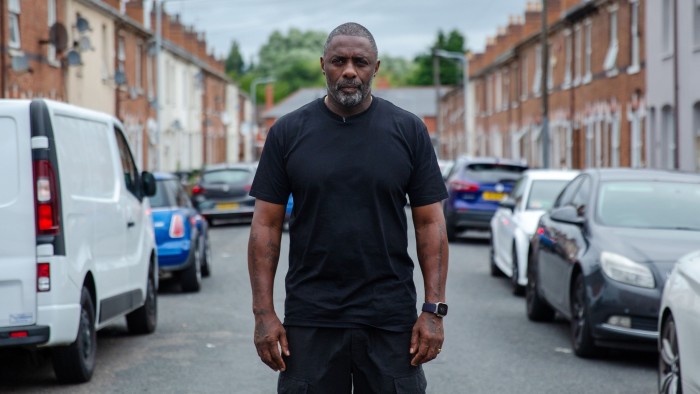Summarize this content to 2000 words in 6 paragraphs in Arabic Unlock the Editor’s Digest for freeRoula Khalaf, Editor of the FT, selects her favourite stories in this weekly newsletter.Three weeks ago, 14-year-old Kelyan Bokassa was stabbed to death on a bus in Woolwich, London. The shockingly brazen nature of the attack ensured the incident was front-page news. But knife-related murders have become dismayingly regular occurrences in Britain during the past decade. In the 12 months to June 2024 there were 225 stabbing homicides in England and Wales, and a further 60,000 police-recorded knife offences — an 80 per cent increase from 2014.While these grim figures speak for themselves, a new BBC documentary goes beyond the alarming statistics and occasionally alarmist media coverage to tell the broader story of knife culture in the UK. Short yet wide-ranging, it seeks to ground these tragedies in a deeper understanding of the social contexts that cultivate violence.The hour-long film is fronted by the actor-cum-activist Idris Elba, whose vocal campaigning helped push the government into passing legislation banning machetes and serrated “zombie” knives last year. An impassioned speaker on the subject, he also proves a compassionate, non-judgemental listener here in conversation with people whose lives have been marked by knife crime, whether as case workers or bereaved family members.Their testimonies give a sense of the tragic complexity of a crisis that so often involves children on either side of the knife. We hear from several victims who were also aggressors. And while the film never tries to diminish the brutality of these violent young men, it also recognises that many fell into this way of life less through choice than circumstance. In one moving segment, young offenders currently serving sentences in juvenile prison discuss the abuse and neglect experienced at home and school. In another, the mother of Ronan Kanda, a 16-year-old boy murdered by teenagers in 2022, reflects on the shortcomings of the education and policing systems that failed to notice the warning signs.The documentary makes a persuasive case that knife crime is symptomatic of a society that has failed to safeguard young people or given them reason to believe in public institutions. While the film features pointed criticisms about social media, school exclusions and cuts to youth services, it also proposes potential solutions inspired by successful pilot programmes. Some involve getting knives off the streets through anonymous, weapon-handover services; others focus on mentorship initiatives that ensure at-risk teens never pick them up in the first place. All are about offering guidance rather than punishment.We see hope on a football pitch in Coventry but we hear little more than platitudes in Westminster and Buckingham Palace. Meetings between Elba and both prime minister Keir Starmer and King Charles, filmed for the documentary, are anticlimactic and lack substance (a pre-election promise by Starmer to increase spending on youth services, we’re reminded, never materialised in the last budget). “Talk is good but action is more important,” says Elba diplomatically after attending a Downing Street summit. Here’s hoping this film inspires a lot more of both.★★★★☆BBC1 and iPlayer from 9pm on January 29
rewrite this title in Arabic Idris Elba: Our Knife Crime Crisis TV review — BBC doc examines youth violence in the UK
مقالات ذات صلة
مال واعمال
مواضيع رائجة
النشرة البريدية
اشترك للحصول على اخر الأخبار لحظة بلحظة الى بريدك الإلكتروني.
© 2025 جلوب تايم لاين. جميع الحقوق محفوظة.


